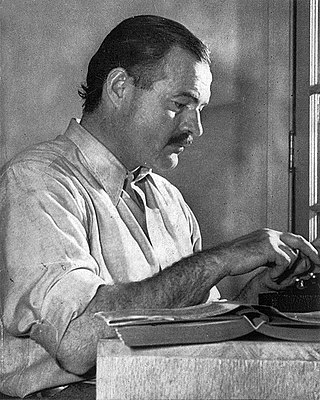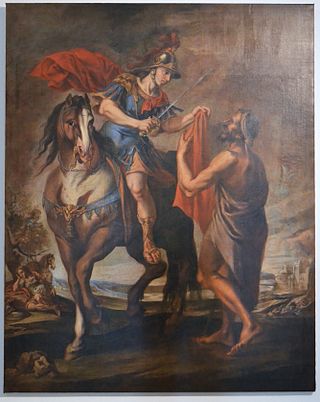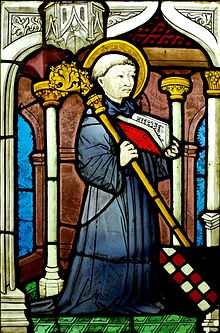
Edward is an English male given name. It is derived from the Anglo-Saxon name Ēadweard, composed of the elements ēad "wealth, fortune; prosperous" and weard "guardian, protector”.
Vaughan and Vaughn are surnames, originally Welsh, though also used as a form of the Irish surname McMahon. Vaughan derives from the Welsh word bychan, meaning "small", and so corresponds to the English name Little and the Breton cognate Bihan. The word mutates to Fychan an identifier for a younger sibling or next of kin. It can also be used as a first name Vaughan.
Donald is a masculine given name derived from the Gaelic name Dòmhnall. This comes from the Proto-Celtic *Dumno-ualos. The final -d in Donald is partly derived from a misinterpretation of the Gaelic pronunciation by English speakers, and partly associated with the spelling of similar-sounding Germanic names, such as Ronald. A short form of Donald is Don. Pet forms of Donald include Donnie and Donny. The feminine given name Donella is derived from Donald.

Walter is a German masculine given name of Germanic origin, composed of the elements walt- "power", "ruler", and hari "army".

Richard is a male given name. It originates, via Old French, from Old Frankish and is a compound of the words descending from Proto-Germanic *rīk- 'ruler, leader, king' and *hardu- 'strong, brave, hardy', and it therefore means 'strong in rule'. Nicknames include "Richie", "Dick", "Dickon", "Dickie", "Rich", "Rick", "Rico", "Ricky", and more.

Ernest is a given name derived from Germanic word ernst, meaning "serious". Notable people and fictional characters with the name include:

Justin is a masculine given name of Latin origin. It is the anglicized form of the Latin given name Justinus, a derivative of Justus, meaning "just", "fair", or "righteous". Justinus was the name borne by various early saints, notably a 2nd-century Christian apologist and a boy martyr of the 3rd century. The name is also related to the similar Latin name Justinian. As an English name, Justin is common particularly in the English-speaking world starting in the latter half of the 20th century.
Bernie is a given name, most often a shortened form of Bernard and Bernadette, and may refer to:
Barry is both a given name and an Irish surname. The given name can be an Anglicised form of some Irish personal names or shortened form of Barrington, while the surname has numerous etymological origins, and is derived from both place names and personal names.
Leonard or Leo is a common English masculine given name and a surname.
Gerard is a masculine forename of Proto-Germanic origin, variations of which exist in many Germanic and Romance languages. Like many other early Germanic names, it is dithematic, consisting of two meaningful constituents put together. In this case, those constituents are gari > ger- and -hard.
Godfrey is a given name and an English surname. The given name is derived from the Old French Godefroy, a name composed of the elements: the first being either God ("God") or gōd ("good"); the second being fred ("peace"). The name was brought to England by settlers from Normandy, the Low Countries, and France. The name is rendered Goraidh, Goiridh in Scottish Gaelic. In some cases the surname is derived from the Middle English personal name Godfrey, Godefrey; or the Old French Godefrei, Godefroi, Godefrois; or the Continental Germanic Godefrid. In other cases, the surname is derived from the Irish Mac Gothraidh or Ó Gothraidh.
The name Hamilton probably originated in the village of Hamilton, Leicestershire, England, but bearers of that name became established in the 13th century in Lanarkshire, Scotland. The town of Hamilton, South Lanarkshire was named after the family some time before 1445. Contemporary Hamiltons are either descended from the original noble family, or descended from people named after the town.

Martin may either be a given name or surname. In Scotland, Martin or McMartin is a common surname of Scottish Gaelic origin. Martin is, however, more common as a masculine given name in many languages and cultures. It comes from the Latin name Martinus, which is a late derived form of the name of the Roman god Mars, protective godhead of the Latins and, therefore, god of war. The meaning is usually rendered in reference to the god as "of Mars", or "of war/warlike" ("martial"). Alternatively, it may also be derived from the Proto-Germanic elements "mar", meaning famous and "tank", meaning thought, counsel.
Hugh is the English-language variant of the masculine given name Hugues, itself the Old French variant of Hugo, a short form of Continental Germanic given names beginning in the element hug- "mind, spirit".

Henry is a masculine given name derived from Old French Henri / Henry, itself derived from the Old Frankish name Heimeric, from Common Germanic *Haimarīks. In Old High German, the name was conflated with the name Haginrich to form Heinrich.
Victor is both a given name and a surname. It is Latin in origin meaning winner or conqueror, and the word “victor” still means this in Modern English.
Maurice is a traditionally masculine given name, also used as a surname. It originates as a French name derived from the Latin Mauritius or Mauricius and was subsequently used in other languages. Its popularity is due to Mauritius, a saint of the Theban Legion. Mauritius is otherwise attested as a given name of the Roman Empire period, in origin meaning "one from Mauritania", i.e. "the Moor".
Clement or Clément is a French and English given name and surname, a form of the Late Latin name Clemens. People with those given names or surnames include:







